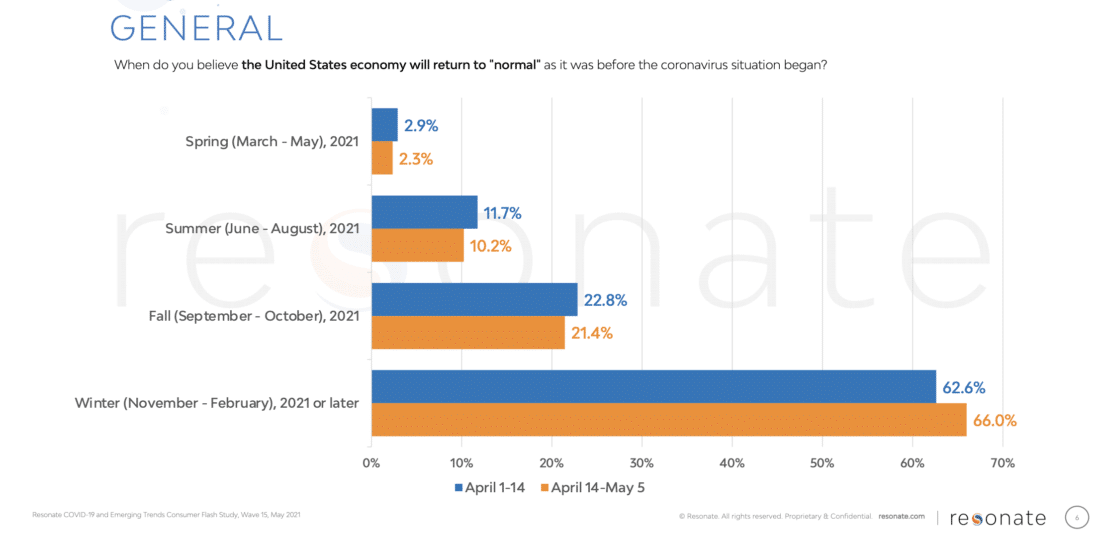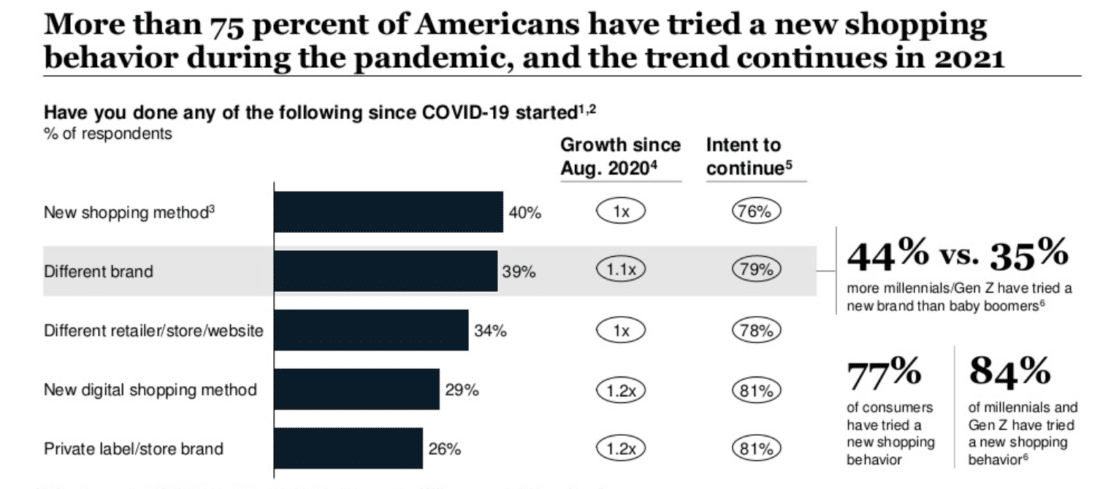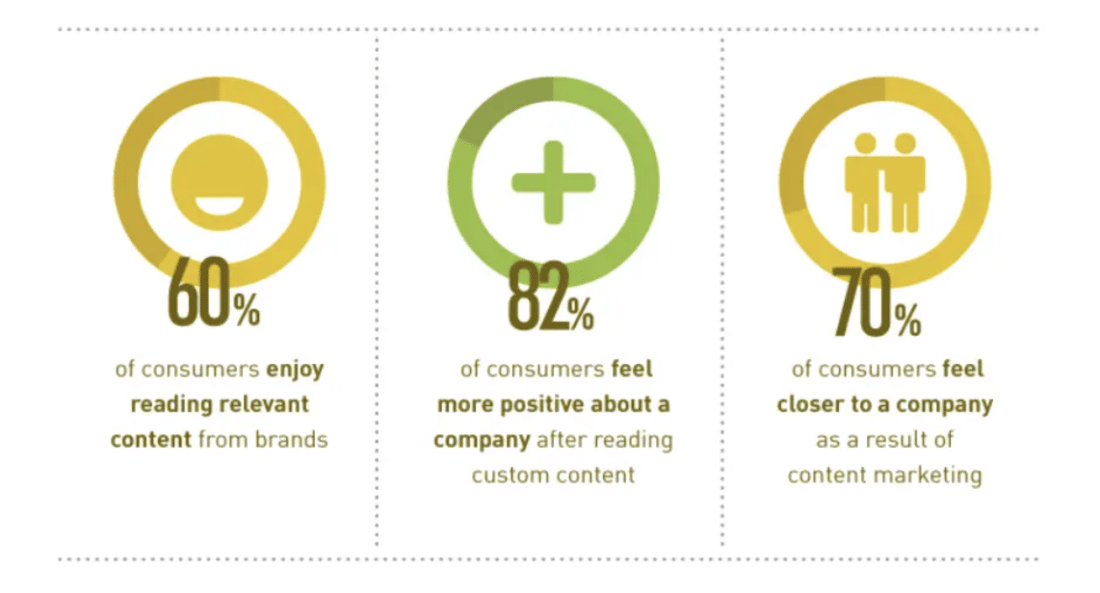This article was updated in January 2022.
Who is the Post-Covid Consumer?
Over the past year and a half, digital marketing teams have had to adapt their messaging to a distinctly online Covid-19 world, impacting everything from digital platforms and e-commerce to content delivery and social media. Any company that didn’t already have a notable digital presence needed to create one—and fast.
According to the Content Marketing Institute, 83% of marketers quickly changed their content strategy once the pandemic started. And 80% reported that the changes were effective. Audience engagement became more critical than ever, as was connecting with the new, and wary, consumer who now went online to shop, to research, to learn, and to play.
A study conducted by Resonate research, “The Return to Human Connection,” explored consumer behavioral trends and post-Covid marketing, including travel, personal finance and retail. The study found that a majority of consumers believed the U.S. economy wouldn’t return to “normal” until winter of 2021.

This reticent mindset has huge implications for post-Covid marketing to today’s consumer seeking a distinctly personalized experience. On this side of the pandemic, consumers have even higher expectations of brands and their digital presence.
According to data from McKinsey, 77% of Americans changed how they shopped during the pandemic, from exploring new shopping methods to trying out different and alternate brands. In addition, 42% of consumers plan to fundamentally change the way they shop as a direct result of Covid-19.

Brands Connect
During Covid-19, digital marketers doubled down on storytelling. Of course, storytelling is nothing new but reaching a quarantined audience was challenging, to say the least. However, it was also necessary. Compelling narratives that people could relate to gave them a connection beyond the tight boundaries of their home. A good story also helped companies differentiate their brands.
“The simple building blocks of narrative and storytelling are applicable to almost any creative undertaking,” said Ben Ostrower, Founder of Wide Eye, in an interview with Velocitize. “It’s the notion of having a protagonist and an antagonist and a clear arc for where you want to take someone.”

For years digital marketing has had to adapt to the changing needs and preferences of consumers. The relatively new use of brand journalism in content marketing became increasingly popular during the pandemic as it provided an additional sense of trust and credibility during a time of widespread misinformation and disinformation.
Trusting a brand is one of the keys to brand loyalty. Aside from blogs, brand journalism can also take the shape of video and podcasts, reaching consumers where they are.
Brands on Purpose
Storytelling is an effective way to pull people in; clearly stating your values may just keep them there. The sheer magnitude of Covid-19 only amplified the growing need for brand purpose, values and advocacy, not to mention experiencing a true emotional connection with the brand. Consumers, especially younger generations, not only expect to know where companies stand—they demand it.
Some brands, like Nike, have been purpose driven for years. Other brands more recently became increasingly vocal in their support of certain social issues. Authenticity and transparency can make or break a customer relationship. In fact, 79% of customers say they prefer socially purpose-driven brands and will prioritize purchases from these companies.
“Purpose driven is meaningful if it’s meaningful to the business,” said Tim Burke, CEO at Traffic Builders Digital Marketing. “If they’re authentic about it, it resonates, and when it resonates, people react.”
One such test of values involved the Black Lives Movement, which exploded during the 2020 killing of George Floyd captured on video. The ubiquitous #BlackLivesMatter hashtag was only surpassed by #COVID19 for the most used hashtag last year. As more and more people became online advocates, they expected their preferred brands to follow suit.
The wide range of ongoing social issues which occurred before, during and after this unprecedented pandemic have illuminated the massive shift in our way of thinking and in the way we live. The messages that resonate, the stories we tell, and the meaning behind our brands are now integral components of the post-Covid marketing strategy, one which will move us forward in this new post-Covid world.





Join the conversation